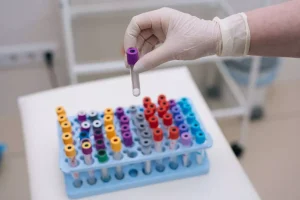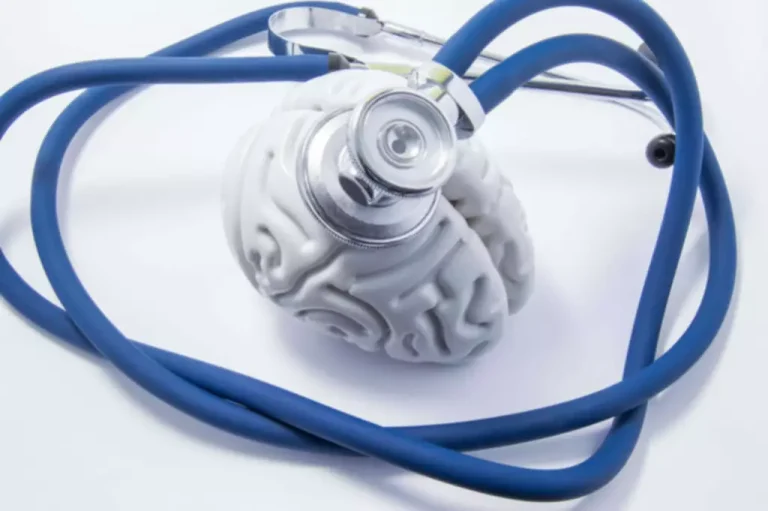
The symptoms of brain fog during alcohol withdrawal can vary from person to person. Insomnia, tremors, increased blood pressure, anxiety, and confusion are commonly reported. These cognitive disturbances can be distressing and may persist throughout the withdrawal period. People with severe addictions alcohol brain fog or a long history of alcohol misuse may suffer serious withdrawal symptoms when quitting. People should talk to a doctor about medical detox, which may prevent serious issues, such as delirium tremens. Some people find that inpatient rehab or support groups, such as Alcoholics Anonymous, are helpful.
Timeline of Alcohol Withdrawal
Irrational thoughts that lead to impulsive behavior are replaced by more reasonable ones. This initial phase of sobriety can be invigorating and is often referred to as the https://ecosoberhouse.com/ “pink cloud”—a period that feels a little like you’ve found a unicorn. You may also want to consider taking a nap during the day if you are feeling particularly tired.
The Known Brain-Damaging Effects of Excess Alcohol
Glutamate, on the other hand, typically stimulates increased brain activity and energy levels. It also helps control our cognitive abilities, such as learning and memory. However, alcohol suppresses glutamate’s effects, leading to even slower brain activity.
- People with a history of alcohol misuse may not be able to consume alcohol safely.
- Clinically, Warren has developed a therapeutic skillset that utilizes a strengths-based perspective, Twelve Step philosophies, Cognitive Behavioral Therapy and Motivational Interviewing.
- If you drink alcohol regularly, you may experience withdrawal symptoms when you stop drinking or reduce your alcohol intake.
- Set aside 30 minutes before retiring to engage in a wind-down routine, such as taking a warm bath or meditating.
National Institute on Alcohol Abuse and Alcoholism (NIAAA)
- Brain fog can be caused by various factors, such as lack of sleep, stress, malnutrition, medication, neuroinflammation, and the use of certain substances, such as alcohol.
- If you’re ready to leave your addiction in the past, put your trust in our licensed and certified addiction therapists.
- While brain fog sometimes goes away on its own within a few days or weeks after quitting drinking, it can persist for extended periods for some people, particularly those with severe alcohol misuse.
- Heavy drinking slows the cerebral cortex, which takes in and processes new information in your brain.
- Dopamine plays an essential role in mood and neurodevelopmental disorders, such as anxiety, depression, and attention deficit hyperactivity disorder (ADHD).
- You build up a tolerance over time and do not feel as good as you once did with the same amount of alcohol.
- If you drink, make sure you get adequate thiamine to prevent this irreversibledisease.
The fortunate takeaway for recovering addicts is that there are simple ways to feed and train your brain in order to regain mental clarity that is equal or close to where it was before addiction. Alcohol fog is a temporary condition that is caused by drinking too much alcohol. While the exact cause of ALS is unknown, alcohol addiction is thought to be a major contributing factor. If you are experiencing any of these symptoms, it is essential to speak to a medical professional. This is because hormones play a significant role in regulating mood, energy levels, and metabolism.
Symptoms of Alcohol Withdrawal: Timeline and Signs of Danger

It’s made by the adrenal gland, just like epinephrine and norepinephrine – the hormones that act behind your fight, flight, or freeze response. If you want to learn more about brain fog and how to manage it, here are plenty of helpful resources. In fact, research has shown that people who are exposed to more sunlight have a lower risk of developing depression. In addition to physical exercise, it’s also important to exercise your brain. Just make sure to start slowly if you’re not used to exercising and building up your stamina over time. Meal delivery services can also be a good option if you don’t have time to cook healthy meals.
Ways To Get Rid Of Brain Fog After Drinking Alcohol
It is important to remember that your body is going through a lot when you first stop drinking alcohol. The brain is so good at adjusting to changes regarding what you put into your body that it figures out how to function during times when you are drinking heavily. Once you take away the chemical reactions that alcohol causes, your brain has to refigure out how to work normally again.
In addition to dementia, long-term alcohol use can lead to other memory disorders like Korsakoff syndrome or Wernicke’s encephalopathy. But as you drink more — and you don’t need to drink that much more — eventually, the enzymes that break down the alcohol get saturated. So, the alcohol builds up quite quickly,” explains addiction psychiatrist Akhil Anand, MD. Engaging in mentally stimulating activities helps keep your brain active and sharp. Support groups also provide accountability, as individuals are surrounded by peers who understand the struggles and triumphs of sobriety. The friendships and connections formed within support groups can be a powerful source of motivation and strength.
- Before you reach for your next drink, Dr. Anand explains how alcohol can affect your brain — not only in the short term, but also in the long run.
- Brain alterations often occur in people who start drinking when they are very young.
- A person’s brain chemistry can change dramatically through alcohol use.
- Any brain that’s been the victim of extended substance abuse certainly couldn’t be harmed by a memory or concentration exercise.
We often don’t realize it, but water actually helps our brain cells communicate with each other. When we’re dehydrated, our brain function can become significantly impaired. This is why people who are severely dehydrated get easily confused and disoriented — sometimes even becoming delirious. Sometimes, brain fog is less related to slow brain function and due more to overactive brain activity, such as over-analyzing a simple situation or obsessing about a problem. One way to let go of nit-picking or ruminating thoughts is to channel your energy into a creative activity, like drawing, needlepoint or cooking.


If you don’t have time to go outside, you can also sit near a window to get some natural light. Yoga is a type of exercise that combines physical activity with mindfulness. Aerobic exercise is any type of activity that gets your heart rate up and makes you breathe more heavily. Aim for at least eight hours of sleep each night, and try to stick to a regular sleep schedule as much as possible. These effects can happen even after one drink — and increase with every drink you have, states Dr. Anand.
This organ is responsible for filtering toxins from the blood and converting nutrients into energy. These deficiencies can lead to symptoms like fatigue, poor concentration, and irritability.











